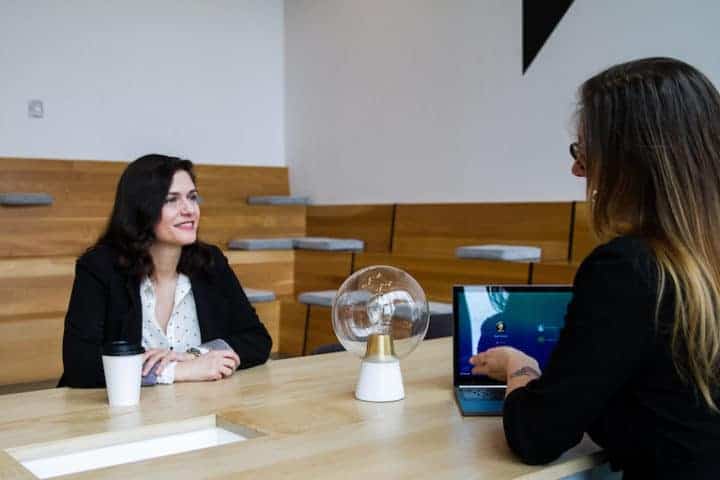Are first impressions really that important?
Learn the Language
A person learning to code can easily fall into the habit of knowing how to properly assemble code to achieve an end result, but not articulate their thinking behind it. For example, not knowing the syntax of specific computer language or why you selected a specific naming convention can weaken your credibility.
Being able to explain your process can be just as important as having the ability to actually execute it. Would you allow an architect to build a house for you if they couldn’t describe how it would look? No matter how impressive their portfolio might be, how confident could you be about hiring them to create your new house?
One of the best ways to land a job in tech is to carry yourself as someone who’s already in the field, and the first step you should take after learning how to code is to learn how to talk about your work. While it’s possible to continue to make progress alone, you can learn a lot from more experienced developers by doing things like joining a developer community, attending local meetups and listening to developer podcasts.
Build a Body of Work to Show
For most tech companies, experience is more valuable that any certificate you can earn. That documented recognition can help but it’s not absolutely necessary with all tech jobs. Let’s go back to the architect example: Who would you rather have build your house, the person who has built a number of reliable and stable homes or the individual that has never built a home but has a certification that says they’re capable of doing so?
Having a portfolio is crucial to a successful interview. It can give you an advantage over someone else seeking the same entry level position. It builds your confidence when you have something you can be proud of to show. It helps your potential employer see that you actually know what you’re doing. If you don’t have a portfolio right now, here are a few suggestions:
- Build a website for someone for free. Ask a friend, family member or local business owner if you can build a website for them. Try not to think of this as free labor, but as an investment in your career.
- Contribute to an open source community. There are plenty of resources out there, like One Source Guide.
- Use codepen.io as a sort of portfolio. It’s great for quickly referencing examples of code you’ve written.
- Contribute to the StackOverflow community. Helping other developers shows how knowledgeable and committed you are to the specific field you want to join professionally.
Seek and Earn Public Validation
Personal validation doesn’t end with having a portfolio. If you want to prove you are the best person for the job, you’ll need to show that coding isn’t just something you do on the weekend. Show your potential employer that you are engaged and serious about being an asset to their company.
For example: If you’ve built any websites or collaborated on a project with someone, ask your client or fellow developer write a recommendation for you on LinkedIn. This helps show your potential employer that your coding experience was so successful that your client/colleague will vouch for you. Make an effort to find those you have worked for who can give you a solid endorsement, not a friend or family member who can’t really endorse your skills.
Find Your Confidence
Confidence is important to develop before the interview. No one wants to sit in the waiting area before the interview wondering, “Am I really cut out for this?” If you’ve put in the work and a potential employer asks you for an interview, then they think you might be the right person for their open position. Don’t second guess that — they know their business and what they need better than you do. If you can’t convince yourself of that, then all the other tips here will achieve nothing.
So, how can you gain confidence before a job interview? One way is to reflect on how hard you’ve worked to get where you are. There’s a popular quote that says, “Take risks: if you win, you will be happy; if you lose, you will be wise.” It’s a risk to put all your effort into learning code, but if you’ve succeeded at it enough to reach the interview stage then there’s no one who can stand between you and your goal but you and your self-doubt. You may not land the first job you interview for but you can learn from that experience and make improvements for your next interview. Monster has a few practical tips on how to show confident body language when interviewing for a job.
Job interviews aren’t easy but the more prepared and confident you are, the readier you’ll be to take on any opportunity that comes your way.
Ashley Harpp studied HTML, CSS and JavaScript at Treehouse. After two or so interviews, she grew more comfortable interviewing and how to best way to present herself for the job. She currently works in Customer Success at Wildbit. Twitter: @ashharpp11
Begin your journey to a new career today.
Free Trial
